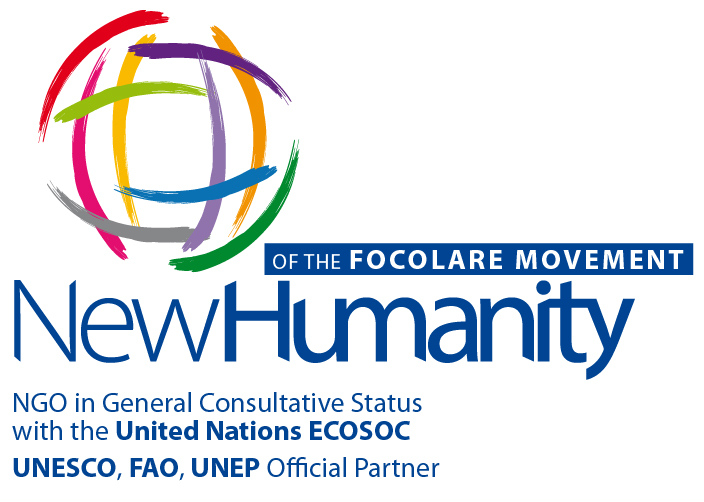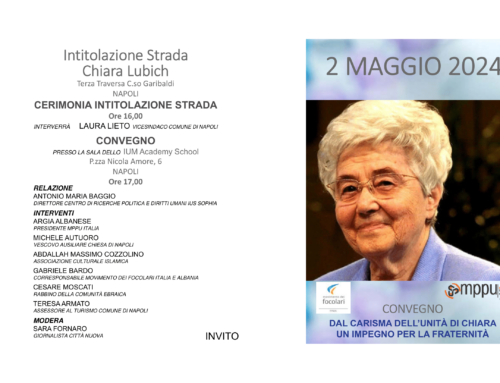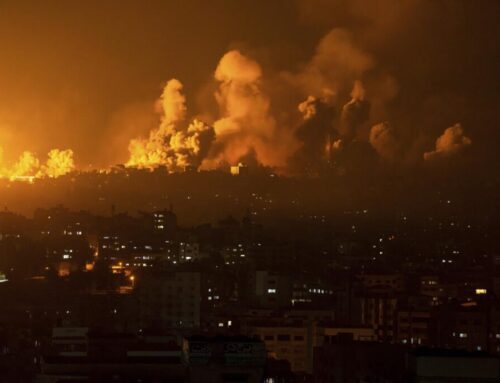A border of peace against every wall
A proposal for the future of Europe born from the invitation of David Sassoli.
Read the full text of the proposal (IT, EN, ES) >>
by Maria Bencivenni and Maria Chiara Humura
Source: Città Nuova
”We are hope, when we don’t put up walls at our borders, when we fight against all injustices.” This is the final message that David Maria Sassoli left us before his unexpected death. An explicit invitation that he had already made in the dialogue with young people during the United World Week of 2021 to take direct citizen participation in the Conference on the Future of Europe seriously. The then President of the European Parliament was very explicit about the sense of discouragement one feels when stonewalled in politics while trying to act with coherence and farsightedness for the respect of human rights and in favor of a long-term, solidarity-based migration management: an epochal phenomenon that constitutes one of the central challenges for the future of Europe.
On the Mediterranean and Balkan routes, the countries in the area, including those in the EU, have implemented unacceptable policies characterized by illegal rejections, refusal to provide protection and guarantee access to the asylum procedure, arbitrary detentions, sending people to “reception” camps marked by systemic conditions of degradation and almost general lack of measures to support the social inclusion of asylum seekers and holders of protection.
Some representatives from different associations have therefore elaborated a series of concrete proposals in favor of an immediate intervention on the migration issue which is central to the future of Europe and cannot be entrusted to the lobbying action of consolidated interest groups.
I, girl of the world
by Maria Chiara Humura
A fire breaks out in the Moria refugee camp in Greece. It was the night between September 8 and 9, 2020, and Europe stopped in front of this tragedy.
This event struck me: once again we were talking about numbers, once again the migrant was on the margins of society; he did not have a face but was only the result of disappointing policies. How many times have I heard people say, “We are all migrants,” but we often forget this in those corners of our mind where the difficulty of the last one does not find space.
I am born in 1994, in a Rwanda besieged by a genocide that left about a million victims in little more than a hundred days. Mine is a lucky story. My family did not have to cross the Mediterranean. My parents were able to find a safe way to escape and get my brother and me to safety, but not without suffering.
Saying goodbye to their elderly parents, siblings, nieces and nephews is suffering they will carry in their hearts forever. We arrive in Italy in February 1995, where my parents completely reinvented themselves, strong in awareness that in the future they would only have themselves to rely on. I spend 16 years of my life as a “black girl” in Italy, with those difficulties that are sadly “normal” for those who bear the suffering of a family that had to leave everything behind on their skin.
Life, however, soon presented me with the difficulties that a political refugee must face. So many questions and so few answers. For my parents I was not yet old enough to understand what hatred was and what its consequences were. I decide to study International Relations with the goal of understanding those wrong political dynamics that come to allow such things to happen again. I dedicate my studies to the phenomenon of migrations, asylum policies, the degrading situation of reception centers, refugee camps and the endless attempts of people forced to leave everything in the search for salvation and dignity.
On May 7, 2021, on the occasion of the international event “Dare to Care,” together with other young people, I had the opportunity to dialogue with the then President of the European Parliament David Sassoli.
We debated about ecology, wars, disarmament, youth policies and migration. Between questions and answers, I noticed his great humanity and attention to those walls that have risen, not only between European states, but also in the hearts of many citizens. Too many times I have heard and read of many people who, in an attempt to cross the sea to finally seek peace, have lost their lives. This is unacceptable.
President Sassoli concluded his speech by inviting us, not only as young people, but as citizens, to put ourselves in the front row in the face of change, by participating with ideas at the Conference on the Future of Europe. We have therefore formulated a proposal on migration so that solidarity may prevail over hatred and indifference, and because this is not the Europe we want. The petition is signed by people from the Political Movement for Unity, the Pope John XXIII Community, Iscos Cisl and the Giorgio La Pira International Student Center.
Some proposals for the Conference on the Future of Europe
- Set up a group to coordinate among different countries and political groups to carry out periodic
monitoring missions along the Balkan route and at the southern borders of Europe, to audit respect of human rights;
- Ensure that the funds allocated to reception measures in non-EU countries that have recently entered the dimension of the right to asylum are not used to build increasingly ghettoized camps but to carry out reception and social integration programs;
- Cease economic and international cooperation policies that exploit the resources of the countries from which migrants come;
- restrict the sale of arms in countries at war;
- Reform the Return Directive to prevent EU countries from using readmissions at internal borders between EU states to circumvent obligations to register asylum claims;
- create a sustainable system for asylum, based on the principle of solidarity and equitable sharing of responsibilities;
- Establish a binding system for the relocation of asylum seekers from Italy, Spain and Greece, in order to avoid placing an excessive burden on these countries in relation to their actual possibilities;
- Promote the implementation of a resettlement program for asylum seekers – with attention to Afghan citizens and vulnerable situations – stranded in non-EU countries of the Balkan area, in order to remove them from the hands of criminal associations;
- Activate additional channels of regular entry for people in need of protection, introducing (as a complementary way in addition to resettlement, relocation and humanitarian admission) the good practices already in place in “humanitarian corridors”, using the figure of the humanitarian visa more widely.
Read the full text of the proposal (IT, EN, ES) >>
Faced with the epochal challenge of migration, solidarity must prevail over hatred and indifference to give Europe a future.






